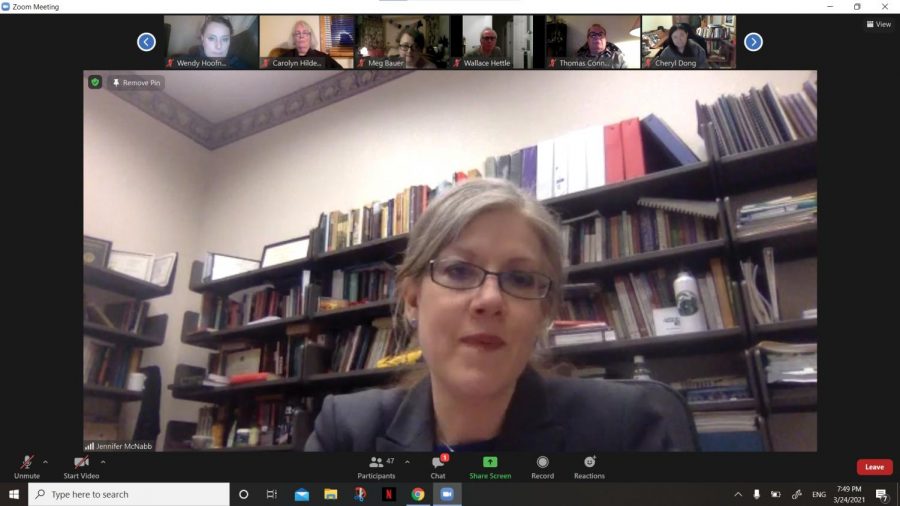History department discusses witch hunts, language use
UNI’s Department of History hosted a lecture to discuss language and power among women in early modern England’s witch hunts.
Mar 29, 2021
On Wednesday, March 24, UNI’s history department came together for a lecture titled, “Many Women, Many Witches: Women, Language and Power.” Hosted by the head of the department, Professor Jennifer McNabb, the event was part of the department’s regular Phi Alpha Theta Lecture Series in recognition of Women’s History Month.
McNabb’s lecture focused on the correlation between language and power, specifically how it was reflected in women’s lives in mid 16th to 17th century England. She has been researching this time period for decades, using legal documents and other primary documents to situate different cases of language offenses in England.
The lecture addressed particular cases in which the terms “witch” and “whore” were used against women in the years when suing people for defamation became popular. At a time when reputation was a person’s most valuable belonging, inflicting injury on someone’s good name became very important in the country’s legal processes.
“Although the legal processes of the time were dominated by men who served as judges, canon lawyers and registrars, it was women who ruled in the world of defamation as plaintiffs, defendants and witnesses to defamatory speech,” McNabb said.
The lecture was informative in describing the way in which the age of witch-hunting in England differed from continental Europe and the United States. Conviction rates during witch trials in England were only 23% because of a prohibition of the use of torture in the country. It also represented the goals and effects legal processes and lawsuits had at the time McNabb studied.
“Legal process was about trying to bring recognition to error and reconciliation, the restoration of good order,” she said. “When people had a falling-out, they had an individual rupture, but these had community ramifications. It was a wound in the community that needed to be healed. Lawsuits facilitated healing, allowing people to let the conflict go.”








